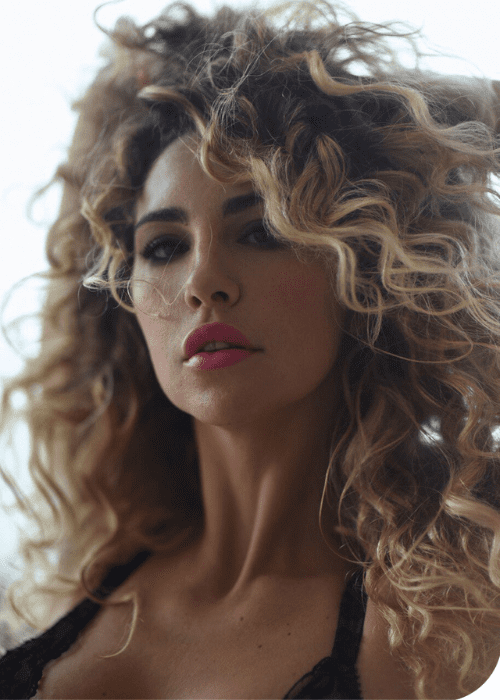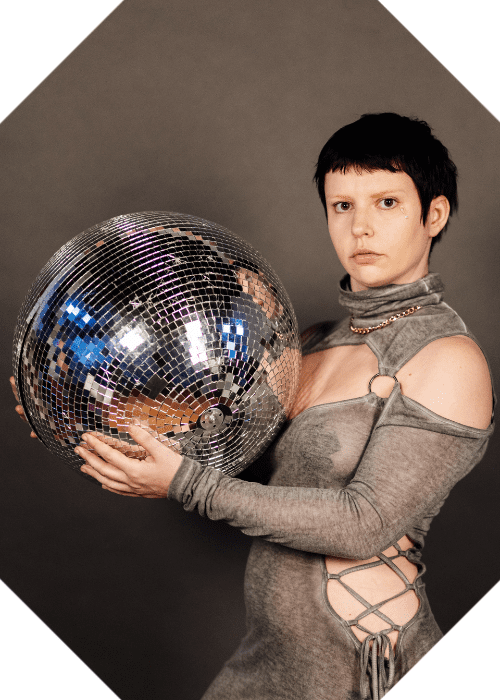
Breaking Free & Finding Strength: Inside Ayri’s Latest Releases “Cry” And “Yes”
In a candid interview, singer-songwriter Ayri delved into the inspirations and intentions behind her latest songs, “Yes” and “Cry.” In the follow-up to “Blurry Line” and “See You Again,” the artist aims to imbue her listeners with a sense of limitless possibility and self-belief, using metaphorical lyrics as a symbol of hope and aspiration.
On the other hand, “Cry” blends heartbreak and empowerment, achieved through a balance of lyrical depth and catchy rhythms, crafted in collaboration with Valeriy and Unorthodox Official. Drawing on personal and observed experiences, the song explores the theme of strength in solitude following deceitful relationships, echoing a sentiment familiar to many.
- Related Content: PREMIERE: AYRI YIELDS TO BURNING DESIRES IN “CLOSER”
Ayri also touched on how her background in broadcasting and journalism has refined her songwriting, enabling her to convey emotions with subtlety and literary elegance. Despite the world’s tragedies, Ayri believes in the power of music as a form of support and an outlet for humanity, maintaining a hopeful ethos in her work. Looking ahead, she plans to continue releasing individual tracks, each resonating uniquely with her audience, while keeping the prospect of an album open for the future.
In one of your latest songs, “Yes,” what do you want your listeners to feel when they hear lines like “You can have whatever you want now”?
Here, it’s more like I really want to hear the music, so I’ll do anything for you to play it. It’s a metaphor for breaking free from constraints and daring to dream big. The meaning is implied, it’s a symbolic representation of hope and aspiration. I hope this line resonates with listeners, encouraging them to believe in themselves.
“Cry” weaves together heartbreak, empowerment, and a catchy rhythm. How did you balance these diverse elements to create a compelling song?
I really wanted a song with a more lyrical voice, but at the same time, not too plaintive, because I can’t stand such direct lamentations. And I believe everything should end with optimism, so this song grew out of that. We were just sitting and thinking, Valeriy Unorthodox Official, and I, contemplating how to make it interesting and simply accepting comments, whether people liked it or not. We understood the meaning, the structure, and the rhythm; all that was left was to choose the right words and place the melody correctly over the music Valeriy had composed. It all came down to whether we liked it or not, whether I could listen to it or not.
The lyrics of “Cry” resonate with the strength found in solitude after a deceitful relationship. Was there a personal experience that inspired this single, or is it a composite of stories you’ve observed?
I believe everyone has experienced it; naturally, I have too. Of course, when you communicate with someone and don’t receive the attention you deserve, and when you leave, suddenly they start to appreciate you. But there’s nothing dramatic in this, like ‘my life is over’ and ‘there’s no more meaning.’ No, on the contrary, it’s like, ‘now it’s your turn to cry.’ We also know the beautiful story of Adele, who wrote two of her hits right after her first boyfriend broke up with her. I think afterward, when she became famous, he was probably crying a lot too. That’s how it goes. I believe both men and women have experienced this.
Can you talk about how your background in broadcasting and journalism has shaped your songwriting process and the way you communicate emotions through your music?
When you’re into journalism or hosting, you need to talk a lot, you need to engage in conversations, conduct good interviews, and naturally, often, you have to play things up. People don’t always speak straightforwardly, and you don’t always ask direct questions on certain topics. Mostly, because my work was mainly in music, I didn’t need to interrogate people like a lawyer. It was more about having pleasant, good conversations, so I didn’t need to ask direct questions.
It needed to be done in a literary and beautiful manner. So, I believe this somehow translated into my songs, because I am a rather gentle, sensitive person. I’m very gentle and sensitive, and I don’t like being open or rude to people. It taught me to communicate very well with people, I think, and also taught me how to incorporate more literary nuances into my songs, favoring subtlety over directness.
With the poise and passion in your music implying that love is the world’s remedy, how do you sustain that hopeful ethos amidst today’s relentless tragedies?
I believe tragedies are always present in life, even natural disasters that are impossible to control. Tragedies cannot be controlled, so since we are born into this world, we need to support ourselves and not give in to tragedy. Empathy is good, sympathy is good, but pushing oneself to the limit can result in something bad for oneself. That’s why songs have always supported people in difficult times, and songs exist to maintain good spirits. It’s one form of support; that’s why people listen to music. It serves as an outlet for humanity, much like sports do.
After releasing a series of singles like “Closer,” “See You Again,” “Blurry Line,” “Baila,” and now “Cry” and “Yes,” are you planning an album release or continuing with individual tracks? Also, how do you successfully mix different musical styles yet keep your signature sound intact?
There are a lot of great songs, actually! I want to share the very best ones and then perhaps compile them into an album along with others. But, sometimes not all of them seem awesome to me, though people might like them; everyone has their rhythms, and each song touches different souls. So, I still probably want to continue releasing standalone singles.
Listen to Ayri’s latest singles below:



